- Regulatory Status
- RUO
- Other Names
- Interferon gamma-inducible protein 10 (IP10), Interferon gamma induced factor, gIP-10, IFI10, INP10, CXCL10 Precoated ELISA Kit
- Ave. Rating
- Submit a Review
- Product Citations
- publications
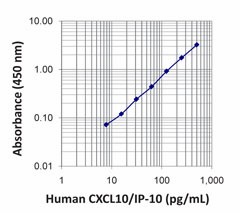
CXCL10, also known as IP-10, is a glutamic acid-leucine-arginine motif negative chemokine structurally and functionally related to MIG (CXCL9) and ITAC (CXCL11). CXCL10 is induced in a variety of cells in response to interferon-γ and lipopolysaccharide. These cell types include monocytes, macrophages, fibroblasts, and epithelial cells. CXCL10 (IP-10) chemoattracts CD4+ and CD8+ T cells, NK, and NKT cells via binding to its receptor CXCR3, which is shared with MIG and ITAC.
CXCL10 inhibits neovascularization in tumors and in wound healing in vivo. It also has anti-proliferative effects on endothelial cells in vitro, and angiostatic and antitumor effects in vivo. It has been suggested that the antiproliferative effect of CXCL10 in endothelial cells is CXCR3-independent and that it is mediated through glycosaminoglycan interaction. CXCL10 also possesses antimicrobial activity against E. coli and L. monocytogenes, and both the spore and bacillus forms of B. anthracis. It has been reported that CXCL10 may be important in the pathogenesis of chronic HCV infection, and the circulating CXCL10 concentration was increased in the early and subclinical stage of Type I diabetes patients. CXCL10 was significantly up-regulated in the salivary glands of patients with Sjögren's Syndrome. It also has been reported that CXCL10 was increased in the urine of patients with pulmonary diseases in the absence of renal dysfunction.
BioLegend's LEGEND MAX™ Human CXCL10 (IP-10) ELISA Kit is a Sandwich Enzyme-Linked Immunosorbent Assay (ELISA) with a 96-well strip plate that is pre-coated with a capture antibody. This kit is specifically designed for the accurate quantitation of human CXCL10 (IP-10) from cell culture supernatant, urine, saliva, serum, plasma, and other biological fluids. This kit is analytically validated with ready-to-use reagents.
Kit Contents
- Kit Contents
-
- Anti-Human CXCL10/IP-10 Pre-coated 96-well Strip Microplate
- Human CXCL10/IP-10 Dectection Antibody
- Human CXCL10/IP-10 Standard
- Matrix C (for serum and plasma samples only)
- Avidin-HRP D
- Assay Buffer A
- Wash Buffer (20X)
- Substrate Solution F
- Stop Solution
- Plate Sealers
Product Details
- Verified Reactivity
- Human
- Application
-
ELISA
- Sensitivity
- 1.38 pg/mL
- Standard Range
- 7.8-500 pg/mL
- Materials Not Included
-
- Microplate reader able to measure absorbance at 450 nm
- Adjustable pipettes to measure volumes ranging from 1 µL to 1,000 µL
- Deionized water
- Wash bottle or automated microplate washer
- Log-Log graph paper or software for data analysis
- Tubes to prepare standard dilutions
- Timer
- Plate Shaker
- Polypropylene vials
Antigen Details
- Cell Sources
- Monocytes, macrophages, fibroblasts, and epithelial cells
- Biology Area
- Cell Biology, Immunology, Innate Immunity, Neuroinflammation, Neuroscience
- Molecular Family
- Cytokines/Chemokines
- Gene ID
- 3627 View all products for this Gene ID
- UniProt
- View information about CXCL10 on UniProt.org
Related FAQs
- In your LEGEND MAX™ ELISA Kits, there is a step that calls for washing the plates before adding sample. What is the purpose of this step?
-
We typically use a stabilizer for pre-coated plates. The additional washing step is designed to remove these components before you start the assay. If you do not perform the washing, the effect on assay performance is negligible.
- I have multiple LEGEND MAX™ ELISA kits that I want to run simultaneously. Can I use the same wash buffer for all the kits?
-
The wash buffer provided in all our LEGEND MAX™ kits is the same and the part numbers on the wash buffer bottles in these kits should be identical. For ELISA MAX™ Deluxe and ELISA MAX™ Standard Sets, we provide a recipe for the wash buffer on each kit’s technical data sheet. This recipe is the same for all ELISA MAX™ sets.
- For some of your ELISA kits, why do my serum samples require dilution with assay buffer?
-
In some cases, dilution with assay buffer is required to minimize the matrix difference between the samples and the standards to achieve better accuracy.






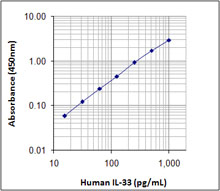
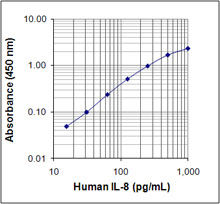
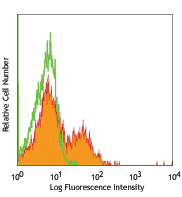
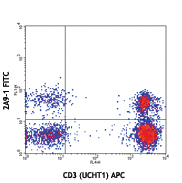



Follow Us